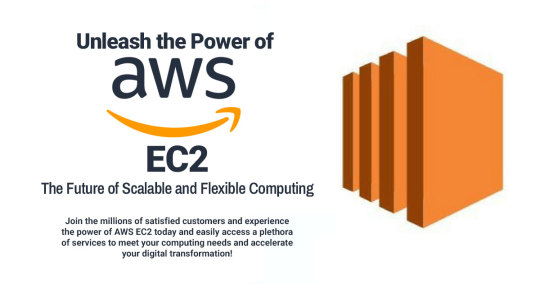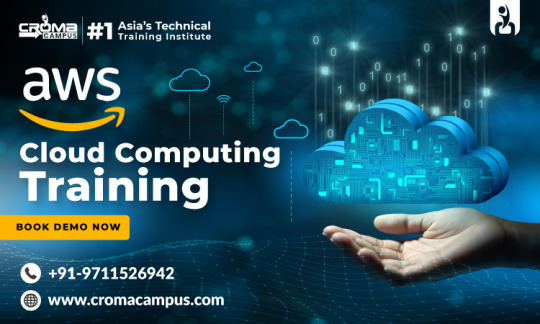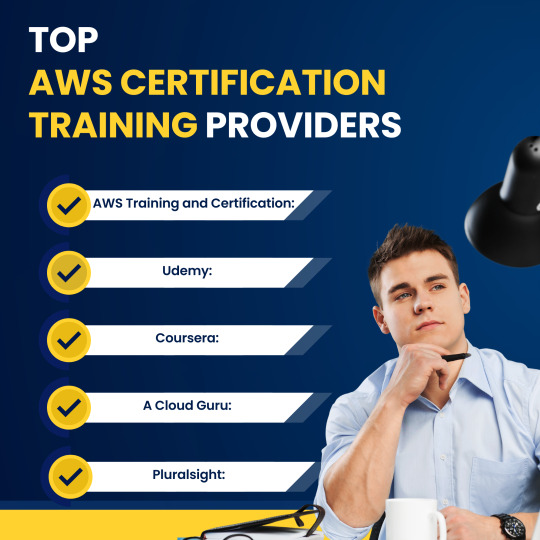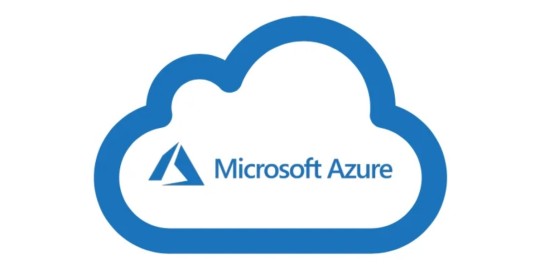#aws cloud computing course
Explore tagged Tumblr posts
Text
Everyday Uses Of AWS Cloud Computing
AWS cloud computing powers everyday applications, from streaming platforms like Netflix to online shopping and smart assistants. It enables secure data storage, seamless app hosting, and efficient business operations. From email services to AI-driven recommendations, AWS supports countless industries, ensuring scalability, reliability, and cost-effectiveness in daily digital interactions. Experience cloud innovation with AWS today!
0 notes
Photo

Amazon EC2 is a web service offered by AWS that provides resizable computing capacity in the cloud that can be used for a wide range of computing workloads.
#amazons aws#aws ec2#amazon ec2#elastic compute cloud#amazon elastic compute cloud#ec2 in cloud computing#aws training#aws cloud computing course#aws course#aws training and certification#aws certification training#aws certification course
0 notes
Text
Kubernetes Training in BTM Layout
Container orchestration platforms like Kubernetes are revolutionizing software deployment. Our Kubernetes Training in BTM Layout is designed for IT professionals who want to master this technology. For more details visit here :- https://cloudinstitutionn.wordpress.com/2025/01/21/kubernetes-training-in-btm-layout/
#aws training in btm layout#azure certification training in btm layout#python full stack course in btm layout#Cloud Computing Course in BTM Layout#AWS Training in BTM Layout#Azure Courses in BTM Layout#Devops Training Institute in BTM Layout#Google Cloud Training in BTM Layout#Kubernetes Training in BTM Layout#Python Full Stack Course in BTM Layout#Digital Marketing Course in BTM Layout#Java Full Stack Developer Course in BTM Layout#Data Analyst Course in BTM Layout#Cloud Computing Certification in BTM Layout#AWS Certification Training in BTM Layout#Azure Certification Training in BTM Layout#Devops Certification Course in BTM Layout#Google Cloud Certification Training in BTM Layout
0 notes
Video
youtube
Introduction to Linux for DevOps: Why It’s Essential
Linux serves as the backbone of most DevOps workflows and cloud infrastructures. Its open-source nature, robust performance, and extensive compatibility make it the go-to operating system for modern IT environments. Whether you're deploying applications, managing containers, or orchestrating large-scale systems, mastering Linux is non-negotiable for every DevOps professional.
Why Linux is Critical in DevOps
1. Ubiquity in Cloud Environments - Most cloud platforms, such as AWS, Azure, and Google Cloud, use Linux-based environments for their services. - Tools like Kubernetes and Docker are designed to run seamlessly on Linux systems.
2. Command-Line Mastery - Linux empowers DevOps professionals with powerful command-line tools to manage servers, automate processes, and troubleshoot issues efficiently.
3. Flexibility and Automation - The ability to script and automate tasks in Linux reduces manual effort, enabling faster and more reliable deployments.
4. Open-Source Ecosystem - Linux integrates with numerous open-source DevOps tools like Jenkins, Ansible, and Terraform, making it an essential skill for streamlined workflows.
Key Topics for Beginners
- Linux Basics - What is Linux? - Understanding Linux file structures and permissions. - Common Linux distributions (Ubuntu, CentOS, Red Hat Enterprise Linux).
- Core Linux Commands - File and directory management: `ls`, `cd`, `cp`, `mv`. - System monitoring: `top`, `df`, `free`. - Networking basics: `ping`, `ifconfig`, `netstat`.
- Scripting and Automation - Writing basic shell scripts. - Automating tasks with `cron` and `at`.
- Linux Security - Managing user permissions and roles. - Introduction to firewalls and secure file transfers.
Why You Should Learn Linux for DevOps
- Cost-Efficiency: Linux is free and open-source, making it a cost-effective solution for both enterprises and individual learners. - Career Opportunities: Proficiency in Linux is a must-have skill for DevOps roles, enhancing your employability. - Scalability: Whether managing a single server or a complex cluster, Linux provides the tools and stability to scale effortlessly.
Hands-On Learning - Set up a Linux virtual machine or cloud instance. - Practice essential commands and file operations. - Write and execute your first shell script.
Who Should Learn Linux for DevOps? - Aspiring DevOps engineers starting their career journey. - System administrators transitioning into cloud and DevOps roles. - Developers aiming to improve their understanding of server environments.
***************************** *Follow Me* https://www.facebook.com/cloudolus/ | https://www.facebook.com/groups/cloudolus | https://www.linkedin.com/groups/14347089/ | https://www.instagram.com/cloudolus/ | https://twitter.com/cloudolus | https://www.pinterest.com/cloudolus/ | https://www.youtube.com/@cloudolus | https://www.youtube.com/@ClouDolusPro | https://discord.gg/GBMt4PDK | https://www.tumblr.com/cloudolus | https://cloudolus.blogspot.com/ | https://t.me/cloudolus | https://www.whatsapp.com/channel/0029VadSJdv9hXFAu3acAu0r | https://chat.whatsapp.com/D6I4JafCUVhGihV7wpryP2 *****************************
*🔔Subscribe & Stay Updated:* Don't forget to subscribe and hit the bell icon to receive notifications and stay updated on our latest videos, tutorials & playlists! *ClouDolus:* https://www.youtube.com/@cloudolus *ClouDolus AWS DevOps:* https://www.youtube.com/@ClouDolusPro *THANKS FOR BEING A PART OF ClouDolus! 🙌✨*
#youtube#Linux Linux for DevOps Linux basics Linux commands DevOps basics DevOps skills cloud computing Linux for beginners Linux tutorial Linux for#LinuxLinux for DevOpsLinux basicslinux commandsDevOps basicsDevOps skillscloud computingLinux for beginnersLinux tutorialLinux scriptingLinu#aws course#aws devops#aws#devpos#linux
1 note
·
View note
Text
10+ AWS Projects for Students to Showcase Cloud Skills

Cloud computing has revolutionized how businesses and individuals manage data, offering scalable and reliable solutions. Amazon Web Services (AWS) is at the forefront of this transformation, providing a vast array of tools and services for deploying, managing, and optimizing applications. For students eager to showcase their cloud skills, working on AWS projects can be a great way to gain hands-on experience and enhance their portfolios.https://internshipgate.com
Here’s a list of 10+ AWS projects that students can explore to demonstrate their cloud computing expertise:
1. Build a Static Website on AWS S3
Host a fully functional static website using AWS S3. Combine it with Amazon CloudFront for faster content delivery and Route 53 for domain management.
Skills Highlighted: S3 bucket setup, DNS configuration, content delivery network (CDN) integration.
2. Create a Personal Portfolio Using AWS Amplify
AWS Amplify simplifies app development and hosting. Build a personal portfolio showcasing your AWS projects and deploy it using Amplify.
Skills Highlighted: Frontend development, CI/CD, deployment pipeline.
3. Deploy a Serverless Application Using AWS Lambda
Develop a serverless application that performs specific tasks (e.g., image processing or text analysis) using AWS Lambda. Integrate it with API Gateway and DynamoDB for data storage.
Skills Highlighted: Serverless architecture, API integration, database management.
4. Set Up a Virtual Private Cloud (VPC)
Design a secure and scalable AWS VPC. Configure subnets, route tables, and internet gateways. Optionally, simulate a hybrid cloud by integrating with an on-premises network using AWS VPN.
Skills Highlighted: Networking, security, infrastructure setup.
5. Launch a Machine Learning Model on AWS SageMaker
Train and deploy a machine learning model using Amazon SageMaker. Use datasets from Kaggle or AWS Open Data Registry to predict trends or analyze data.
Skills Highlighted: Machine learning, data preprocessing, model deployment.
6. Implement a Real-Time Chat Application
Build a chat application using AWS AppSync for real-time data syncing. Combine it with Cognito for user authentication and DynamoDB for storing messages.
Skills Highlighted: Real-time data synchronization, user management, app development.
7. Design an IoT System with AWS IoT Core
Create an IoT application where devices send data to AWS IoT Core. Visualize this data using AWS QuickSight or store it in Amazon RDS for analytics.
Skills Highlighted: IoT integration, data visualization, cloud database management.
8. Build a Scalable E-Commerce Platform
Develop an e-commerce prototype using Amazon EC2 for hosting, RDS for database management, and S3 for storing product images. Enhance the platform with CloudFront for speed optimization.
Skills Highlighted: Full-stack development, scalability, cloud storage.
9. Implement Disaster Recovery with AWS Backup
Simulate a disaster recovery system by configuring AWS Backup to automatically create backups of your database and storage. Test restoring from backups to ensure reliability.
Skills Highlighted: Backup management, reliability engineering, disaster recovery.
10. Analyze Big Data with AWS Glue and Athena
Extract and transform data using AWS Glue and query it using Athena. Pair this project with Amazon S3 for storage and QuickSight for visualization.
Skills Highlighted: Data analysis, ETL (Extract, Transform, Load), data querying.
11. Create a Photo Album Using AWS Rekognition
Develop a photo album application that uses Amazon Rekognition to analyze and tag uploaded photos. Add search functionality based on identified objects or people.
Skills Highlighted: AI/ML integration, image processing, app functionality.
12. Host a CI/CD Pipeline with AWS CodePipeline
Set up a CI/CD pipeline for a simple app using AWS CodePipeline. Integrate it with CodeCommit for version control and CodeBuild for automated builds.
Skills Highlighted: DevOps, CI/CD, version control integration.
Tips to Maximize Your Learning
Start with small projects and gradually move to complex ones.
Document your process on GitHub or a personal blog to share your learning.
Explore AWS Free Tier to keep costs manageable during project development.
Join AWS communities or forums to seek help and collaborate with peers.
Conclusion
Completing AWS projects not only helps you understand cloud computing concepts but also gives you practical experience with industry-relevant tools. Whether you’re building applications, managing infrastructure, or exploring AI, these projects will make your portfolio stand out to potential employers.https://internshipgate.com
#career#internship#virtualinternship#internshipgate#internship in india#education#cloud computing#aws cloud#aws course#projects
0 notes
Text
Can a non-IT student do a Cloud Computing Course? Yes or No?
The days when a degree in IT was a must to enter the field are long gone.
Today, all you really need is a passion to learn, and you can pursue the career of your choice. As the IT industry continues to grow and become crucial to nearly every sector, the demand for skilled professionals in this field is higher than ever.
In fact, according to a report by Precedence Research, this industry — which currently stands at USD 1.50 trillion in 2024 — is expected to reach around USD 2.98 trillion by 2034.
With such high demand, it’s quite evident why many “non-techies” are now looking to switch to IT, particularly in the field of cloud computing.
So, if you’re an individual or perhaps a non-IT student wondering, “can a non-IT student do a cloud computing course”, you don’t need to worry.
There’s definitely space for you to make a career in the field of IT — or more specifically, cloud computing — regardless of your background.
But, before you start to make your switch, let’s first understand what exactly cloud computing is:
Cloud Computing — An Overview
Cloud computing refers to the delivery of computing services — such as applications, data storage, networking, and analytics — over the internet, instead of physical, on-site servers.
This technology enables businesses to scale operations, innovate quickly, and manage resources more efficiently and flexibly.
Cloud computing is a broad and dynamic field that goes beyond just coding and network management.
It includes a range of roles and specializations like cloud developers, data analysts, project managers, sales professionals, and customer support teams.
As such, it offers opportunities for various skill sets and expertise for people from various fields.
Renowned names like Amazon Web Services (AWS), Microsoft Azure, and Google Cloud Platform (GCP) are among the major providers of cloud-based services to millions.
And as far as learning goes, there are various credible platforms in the market. Names like Quick Certified that offer courses like Cloud Computing Bootcamp.
Courses like these are perfect for beginners as well as individuals seeking new skills in today’s technology-driven world.
Having done with the basics, now let’s discuss how a non-IT professional can transition to IT — specifically in the field of cloud computing:
How a Non-Technical Professional can Transition to IT (particularly cloud computing)
• Start with IT Fundamentals
Whether you’re a professional or a non-tech student wanting to do a cloud computing course, it’s essential to build a solid foundation of basic IT concepts.
The basics of IT include learning about hardware, software, operating systems, networking, and security.
Familiarizing yourself with how computers work, how data flows through networks, and how different systems interact will help you understand more advanced cloud technologies later on.
• Learn Key Cloud Computing Skills
Once you have an understanding of IT basics, it’s time to focus on cloud computing.
Cloud platforms like Amazon Web Services (AWS) and Google Cloud are the backbone of many modern IT systems.
To get started, learn the core cloud services these platforms offer, such as computing power, storage, and databases.
Apart from that, familiarizing yourself with at least one programming language is needed to automate tasks or developing solutions.
Languages like Python or JavaScript are often recommended for beginners as they are relatively easy to learn and prove as good starting points.
• Get Certified
Once you think you have a solid grasp of the fundamentals of cloud computing, your next goal should be getting yourself certified.
Earning a certification is a great way to demonstrate your abilities, knowledge, and skills to a potential employer, which improves your chances of getting shortlisted.
While it’s important to note that certification doesn’t automatically guarantee employment, but rather a proof of your understanding that you have the requisite knowledge and skills to manage cloud-based projects and solutions.
As a beginner, it’s possible that you haven’t decided on a specialization yet. Therefore, it’s advisable to begin with foundational or associate-level programs like Cloud Computing Bootcamp from platforms like Quick Certified are quite sufficient.
• Gain some work experience
The best way to truly learn is by doing. And that also stands true for IT roles.
Look for opportunities to work on real-world projects, whether it’s through internships, volunteer work, or personal projects.
Even if you’re just setting up a simple cloud-based application or working on a side project to practice what you know, real experience is invaluable.
You can also start contributing to open-source projects or find freelance opportunities to build your portfolio.
• Build a stellar Portfolio
As you gain skills and experience, create a portfolio to showcase your work.
This could include projects you’ve done, cloud-based applications you’ve built, or even contributions to open-source communities.
A well-organized portfolio helps demonstrate your abilities to employers and makes you stand out from the competition.
If you’re unsure where to start, try building small cloud projects like deploying a website on AWS or setting up a database on Google Cloud.
Doing pro bono (for free) work provides an excellent opportunity for you to enhance your skills through real-world projects while also contributing to the cloud computing community.
• Don’t ignore Networking!
Networking is key in IT, just like in any other field.
Attend industry events, webinars, and online forums where cloud professionals gather.
You can also connect with IT professionals or Top Voices on LinkedIn, asking for information regarding a particular topic, or seek advice on how to break into the field.
Building relationships with others in the industry can lead to valuable job opportunities or mentorship.
• Search for Jobs
Once you’ve done all the previous steps, it’s time to start applying for jobs.
You can apply for jobs as well as continue networking as both of them go hand in hand.
Begin with entry-level positions or internships to get your foot in the door.
Make sure your resume highlights your relevant work experience with clear, detailed bullet points that showcase your impact — be specific and include everything relevant to the job description — like cloud certifications, relevant projects, and IT experience.
Your cover letter should express your passion for the field and highlight the unique skills and expertise you bring to the table.
You can also opt to partner with recruiters who can advocate for you and help you stand out to potential employers.
Then, if your application gets noticed, things can move fast. Brush up on your interview skills so you’re ready to impress when the opportunity arrives.
Lastly, the most important step: Even after landing a job, continue to learn and grow in the field.
Cloud computing is constantly evolving, and staying up to date will help you advance in your career.
Final Word
In conclusion, making the switch to a career in IT, especially in cloud computing, might seem challenging at first — especially considering if you’re not from the same field, but it offers many exciting opportunities for growth — both knowledge-wise and money-wise.
By building a solid understanding of IT basics, learning about cloud computing, gaining practical experience, connecting with other professionals, and earning certifications, you’ll be setting yourself up for success in this dynamic field.
So, do you think a non-techie individual or a non-IT student can do a cloud computing course and thrive in cloud computing?
Let us know your thoughts below!

1 note
·
View note
Text
Breaking into the Cloud Computing and DevOps Field: Where to Start?

The tech landscape is rapidly transforming, with cloud computing and DevOps at the forefront of this evolution. As businesses increasingly migrate their operations to the cloud and adopt agile practices, the demand for skilled professionals in these areas continues to rise. If you’re looking to break into this exciting field, one of the best first steps is to enroll in a cloud computing institute in Hyderabad. Here’s how to get started on your journey.
Understanding the Basics
Before diving into a career in cloud computing and DevOps, it’s essential to understand what these fields entail. Cloud computing involves delivering various services, such as storage, databases, and software, over the internet, enabling businesses to operate more efficiently. DevOps is a set of practices that integrates software development (Dev) and IT operations (Ops), fostering collaboration and streamlining workflows.
Understanding these concepts in cloud computing institute in Hyderabad lays the foundation for your career. Once you grasp the basics, you can focus on acquiring the necessary skills and knowledge.
Choosing the Right Cloud Computing Institute in Hyderabad
Selecting a reputable cloud computing institute in Hyderabad is crucial for your education and future career. Look for institutes that offer:
Comprehensive Curriculum: Ensure the program covers essential topics such as cloud service models (IaaS, PaaS, SaaS), deployment models, cloud security, and fundamental DevOps practices.
Hands-On Training: Practical experience is vital. Choose institutes that offer labs, projects, and internships to apply theoretical knowledge in real-world scenarios.
Industry Recognition: Look for programs that are well-regarded in the industry, ideally with partnerships or collaborations with leading tech companies.
Experienced Instructors: Learn from professionals with real-world experience who can provide valuable insights and mentorship.
Certifications: Opt for institutes that prepare you for industry-recognized certifications, such as AWS Certified Solutions Architect or Microsoft Certified: Azure Fundamentals. These credentials enhance your employability and credibility.
Building Your Skill Set
Once you’ve enrolled in a cloud computing institute in Hyderabad, focus on building your skill set. Key areas to concentrate on include:
Cloud Platforms: Familiarize yourself with major cloud service providers like AWS, Microsoft Azure, and Google Cloud. Understanding their services and offerings will give you a competitive edge.
Networking and Security: Learn about network configurations, security protocols, and compliance standards relevant to cloud environments.
DevOps Tools: Gain proficiency in popular DevOps tools such as Docker, Kubernetes, Jenkins, and Git. These tools are essential for automating processes and enhancing collaboration.
Scripting and Automation: Basic programming and scripting skills (Python, Bash, etc.) can significantly enhance your ability to automate tasks and manage cloud resources efficiently.
Gaining Practical Experience
Practical experience is crucial for solidifying your understanding and enhancing your resume. Participate in internships or collaborative projects during your training. Many cloud computing institutes in Hyderabad offer internship placements that can provide invaluable experience.
Additionally, consider contributing to open-source projects or creating your own projects. This hands-on experience not only helps you apply your skills but also demonstrates your initiative and problem-solving capabilities to potential employers.
Networking and Building Connections
Networking is essential in the tech industry. Attend workshops, webinars, and local meetups to connect with professionals and peers. Joining online forums and social media groups focused on cloud computing and DevOps can also help you stay updated on industry trends and job opportunities.
Leverage platforms like LinkedIn to showcase your skills, share your projects, and engage with industry leaders. Building a strong professional network can lead to mentorship opportunities and job referrals.
Exploring Career Opportunities
Once you’ve completed your training from cloud computing institute in Hyderabad and gained practical experience, it’s time to explore career opportunities. The job market for cloud computing and DevOps professionals is robust, with various roles available, including:
Cloud Engineer: Responsible for managing and implementing cloud services and solutions.
DevOps Engineer: Focuses on integrating development and operations to improve deployment efficiency and reliability.
Cloud Architect: Designs and oversees cloud infrastructure and strategy.
Site Reliability Engineer (SRE): Ensures systems' reliability and performance through proactive monitoring and incident management.
Many organizations are actively seeking talent in these roles, offering competitive salaries and benefits.
Continuous Learning and Development
The tech landscape is ever-evolving, making continuous learning vital. After starting your career, consider pursuing additional certifications or advanced training programs to keep your skills updated. This commitment to learning will enhance your career trajectory and keep you relevant in a competitive job market.
Conclusion
Breaking into the cloud computing and DevOps field may seem daunting, but with the right approach, it can be an exciting and rewarding journey. Start by enrolling in a reputable cloud computing institute in Hyderabad to gain the foundational knowledge and skills necessary for success. Focus on building your expertise, gaining practical experience, and networking within the industry. By taking these steps, you’ll be well on your way to establishing a fulfilling career in these dynamic and in-demand fields. Embrace the challenge, and you’ll find a world of opportunities waiting for you!
#technology#ai#devops#aws#Cloud Computing#cloud computing course in mumbai#cloud computing trends#cloud computing certification#cloud computing market#cloud computing training#cloud computing jobs#cloud computing course#DevOps#aws devops course in hyderabad#devops certification#DevOps training#DevOps course#DevOps training in hyderabad#aws training in hyderabad#aws cloud#aws certification#aws course
0 notes
Text
Generative AI to digital twins: Powering the AI revolution
New Post has been published on https://thedigitalinsider.com/generative-ai-to-digital-twins-powering-the-ai-revolution/
Generative AI to digital twins: Powering the AI revolution
This article is based on Santosh Radha’s brilliant talk at the AI Accelerator Summit in San Jose. As an AIAI member, you can enjoy the complete recording here. For more exclusive content, head to your membership dashboard.
Generative AI is revolutionizing how we interact with technology. From chatbots that converse like humans to image generators producing stunning visuals, this incredible tech is transforming our world.
But beneath these mind-blowing capabilities lies a massive computing infrastructure packed with technical complexities that often go unnoticed.
In this article, we’ll dive into the realm of high-performance computing (HPC) and the challenges involved in productionizing generative AI applications like digital twins. We’ll explore the explosive growth in computing demands, the limitations of traditional HPC setups, and the innovative solutions emerging to tackle these obstacles head-on.
But first, let me quickly introduce myself. I’m Santosh, and my background is in physics. Today, I head research and product at Covalent, where we focus on orchestrating large-scale computing for AI, model development, and other related domains.
Now, let’s get into it.
The rise of generative AI
Recently, at the GDC conference, Jensen Huang made an interesting observation: he called generative AI the “defining technology of our time” and termed it the fourth industrial revolution. I’m sure you’d all agree that generative AI is indeed the next big thing.
We’ve already had the first industrial revolution with steam-powered machines, followed by the advent of electricity, and then, of course, computers and the internet. Now, we’re witnessing a generative AI revolution that’s transforming how we interact with various industries and touching almost every sector imaginable.
We’ve moved beyond machine learning; generative AI is making inroads into numerous domains. It’s used in climate tech, health tech, software and data processing, enterprise AI, and robotics and digital twins. It’s these digital twins that we’re going to focus on today.
Digital twins: Bridging the physical and virtual worlds
In case you’re not familiar with digital twins, let me explain the concept. A digital twin is a virtual representation of a physical system or process. It involves gathering mathematical data from the real-world system and feeding it into a digital model.
For instance, let’s consider robotics and manufacturing applications. Imagine a large factory with numerous robots operating autonomously. Computer vision models track the locations of robots, people, and objects within the facility. The goal is to feed this numerical data into a database that a foundational AI model can understand and reason with.
With this virtual replica of the physical environment, the AI model can comprehend the real-world scenario unfolding. If an unexpected event occurs – say, a box falls from a shelf – the model can simulate multiple future paths for the robot and optimize its recommended course of action.
Another powerful application is in healthcare. Patient data from vital signs and other medical readings could feed into a foundational model, enabling it to provide real-time guidance and recommendations to doctors based on the patient’s current condition.
The potential of digital twins is immense. However, taking this concept into real-world production or healthcare environments presents numerous technical challenges that need to be addressed.
The computing power behind the scenes
Let’s shift our focus now to what powers these cutting-edge AI applications and use cases – the immense computing resources required.
A few years ago, giants like Walmart were spending the most on cloud computing services from providers like AWS and GCP – hundreds of millions of dollars every year. However, in just the last couple of years, it’s the new AI startups that have emerged as the biggest consumers of cloud computing resources.
For example, training ChatGPT-3 in 2022 reportedly cost around $4 million in computing power alone. Its successor, ChatGPT-4, skyrocketed to an estimated $75 million in computing costs. And Google’s recently launched Gemini Ultra is said to have stacked up nearly $200 million in computing expenditure.
This post is for paying subscribers only
Subscribe now
Already have an account? Sign in
#2022#ai#ai model#applications#Article#AWS#background#box#chatbots#chatGPT#ChatGPT-3#ChatGPT-4#climate#Cloud#cloud computing#computer#Computer vision#computers#computing#conference#consumers#content#course#cutting#dashboard#data#data processing#Database#development#digital twins
0 notes
Text

Cloud Computing AWS Course
Master with our Cloud Computing AWS Course. Ready to soar to new heights in your tech career. Join our comprehensive AWS course and become a cloud computing expert. Learn from industry experts with hands-on training and real-world projects.
0 notes
Text

You may learn everything there is to know about AWS's fundamental services, such as computing, storage, networking, security, and more, by signing up for our AWS Certification Training Course. You will gain knowledge on how to manage AWS infrastructure effectively by using automation tools, optimizing performance, and designing scalable and resilient cloud solutions.
0 notes
Text
Cloud Computing Certification in BTM Layout
Cloud Computing Certification in BTM Layout
Elevate your career with expert-led cloud computing certification training in BTM Layout. Gain hands-on expertise in Google Cloud, AWS, Azure, and Kubernetes. Our courses prepare you for globally recognized certifications, empowering you with in-demand skills. Join Cloud Institution to excel in the competitive cloud industry. Contact us today! For more details visit here :- https://cloudinstitution.com/cloud-computing-course-in-btm-layout-bangalore/
#azure certification training in btm layout#aws training in btm layout#azure courses#python full stack course in btm layout#devops training institute#Cloud Computing Certification in BTM Layout#Google Cloud Training in BTM Layout
0 notes
Text
Cloud Computing Under a Microscope: An In-depth Analysis of Amazon Web Services (AWS)
The evolution of cloud computing has remodeled the face of businesses, and leading the charge is Amazon Web Services (AWS). This provider offers a diverse range of services, garnering attention and selection from corporations around the world. Taking into account the ongoing shift of businesses towards the cloud, a comprehensive understanding of AWS's capabilities is a must. Enhancing one's expertise in cloud management, through programs like the AWS Course in Pune, is often recommended. This examination provides an in-depth look at the many facets of AWS, its notable strengths, diverse service offerings, and its undeniable impact on today's business domain.
Understanding Amazon Web Services (AWS)
Amazon Web Services stepped into the cloud computing arena in 2006 and has since then, positioned itself as the trailblazer in the industry. Born out of Amazon's own infrastructure concerns, AWS now boasts a myriad of services, spanning computational power, storage, and sophisticated tools in machine learning, analytics, Internet of Things (IoT), and cybersecurity, all served via a scalable and dependable cloud environment.
AWS: Synonymous with Performance and Trustworthiness
Known for its constant pursuit of operational efficiency and impeccable reliability, AWS sets a benchmark for other providers. Its extensive global network of data centers spread across several regions promises minimized latency and maximized service availability. AWS's stringent Service Level Agreements (SLAs) and its advanced network design further enhance its credibility, highlighting its efficiency and dependability, often why businesses trust AWS for their cloud solutions.
Seamless and dynamic scalability
What makes AWS stand out is its ability to provide seamless scalability, allowing businesses the flexibility to adjust their infrastructure in alignment with their fluctuating operational demands. This adaptability is heavily favored by organizations experiencing variable workloads and rapid growth. From handling surges in web traffic or adding storage capacity to scaling computational power, AWS stands ready to meet the dynamic demands of today's businesses.

The financial value of AWS
AWS's innovative pricing options, such as pay-as-you-go or reserved instances, have the potential to save costs although understanding its pricing structure could be a challenge. It's vital that customers maintain vigilance in their consumption to avert unexpected charges. Despite this, AWS's scalability, reliability, and performance often validate the expenses incurred, rendering it a financially viable choice for many businesses.
Exceptional versatility and service assortment
Perhaps AWS's most appealing feature is its extreme flexibility and comprehensive range of services. From foundational infrastructure elements to advanced technology tools in machine learning and analytics, AWS provides the necessary components to design any application. Be it managing a website, running complex enterprise-level systems, or harnessing state-of-the-art AI and big data technologies, AWS equips businesses to achieve their technological goals.
Empowerment through AWS Certification Online Training
AWS Certification Online Training is invaluable for IT enthusiasts seeking to fully utilize AWS's services. These in-depth courses empower individuals with the knowledge and skills required to skillfully maneuver through AWS services and architectures. Offering a wide variety of certifications from AWS Certified Solutions Architect to specialized credentials in areas such as DevOps and security, these training courses pave the way for careers in cloud computing.

Uncompromised Security
In this digital age, AWS places the utmost importance on the security of customer data - particularly their confidentiality, integrity, and availability. With stringent security measures and several compliance certifications, AWS enables users to fend off digital threats. However, it's essential for customers to apply recommended strategies and follow security guidelines to effectively mitigate risks.
Efficient Customer Support
The customer service experience at AWS includes community support, user guidance, and tiered professional assistance. For some companies, the basic resources may suffice, however premium customer service packages promote specialized support and instant access to technical expertise for businesses requiring more in-depth service.
Conclusion
As a paradigm of the revolutionizing impact of cloud computing, Amazon Web Services enables businesses to excel in a digitally-driven marketplace with its extraordinary performance, expandability, stability, and broad scope of services. Regardless of whether you're an emerging startup, an established business, or an individual developer, AWS is a formidable partner. As the demand for cloud technologies increases, a deep understanding and efficient utilization of AWS's features will be intrinsic to gaining a competitive edge in today's business world.
#aws#aws course#technology#education#cloud computing#cloud services#technews#trending#artists on tumblr
0 notes
Text

Are you looking to become an AWS expert? 🌥️ Join our specialized AWS training program at eMexo Technologies and take your cloud computing skills to the next level! Whether you're just starting or aiming to deepen your expertise, we've got you covered.
💡 What You'll Learn:
AWS Architecture & Services
Cloud Security Best Practices
Hands-on Labs & Real-World Scenarios
Certification Preparation
🎯 Why Choose Us?
Expert Instructors with Industry Experience
Flexible Learning Schedules
Real-time Support & Guidance
Certification Assistance
Course Link: https://www.emexotechnologies.com/courses/aws-solution-architect-certification-training-course/
📅 Upcoming Batch: [ 5th Sept 2024 ]
📍 Location: [ Electronic City, Bangalore ]
💰 Special Offer: Enroll now and get a 40% discount!
Contact Us
📞 Phone: [ +91 9513216462 ]
🌐 Website: [ https://www.emexotechnologies.com/ ]
📧 Email: [ [email protected] ]
#aws#awscloud#awstraining#aws course#techeducation#techskills#cloud computing#certificationcourse#e learning#bootcamp#career growth#emexotechnologies#bangalore#electroniccity
0 notes
Text
Unleashing the Power of AWS: Mastering Cloud Computing
Are you prepared to start a transformation journey in the cloud computing field? Look only at our robust and comprehensive AWS Training and Certification Course.
Read More -
https://www.scribd.com/document/709430205/Unleashing-the-Power-of-AWS-Mastering-Cloud-Computing
#aws#certification#course#bangalore#aws course#aws training#career#job#job placement services#web development#software#technology#computing#cloud computing#india#it training courses
0 notes
Text
#aws training in pune#cloud computing courses in pune#aws course in pune#software development#software developers
0 notes
Text
Why Azure Cloud Skills Are in High Demand Across Industries

In the digital age, cloud computing has become a cornerstone for businesses looking to enhance efficiency and scalability. Among the various cloud service providers, Microsoft Azure is gaining significant traction due to its comprehensive offerings and robust capabilities. As organizations across industries increasingly adopt Azure for their cloud solutions, the demand for professionals with Azure cloud skills is rapidly rising. For those in Hyderabad, pursuing azure training in Hyderabad is a strategic step toward a rewarding career.
The Shift to Cloud Computing
The transition to cloud computing is reshaping the business landscape. Organizations are leveraging cloud solutions to improve operational efficiency, reduce costs, and foster innovation. Azure stands out for its extensive range of services, including computing, analytics, storage, and networking, making it a preferred choice for many companies. Consequently, professionals who possess Azure cloud skills are becoming invaluable assets to organizations. This rising need emphasizes the importance of azure training in Hyderabad for aspiring tech professionals.
Why Azure Skills Are Essential
Versatility of Azure: Azure supports a wide range of programming languages, frameworks, and tools, making it adaptable to various business needs. This versatility increases the demand for skilled professionals who can navigate the platform effectively.
Growing Market Share: As Azure continues to capture a larger share of the cloud market, companies are actively seeking professionals who can help them harness its capabilities. The increasing adoption of Azure means more job opportunities for those with relevant skills, making azure training in Hyderabad a valuable investment.
Industry Applications: Azure is not limited to a specific sector; it is utilized across finance, healthcare, retail, and technology, among others. This broad applicability means that Azure skills are in demand across diverse industries, providing numerous career options for graduates of azure training in Hyderabad.
Emphasis on Security: With growing concerns about data security and compliance, professionals skilled in Azure’s security features are highly sought after. Understanding how to implement security protocols within Azure can set candidates apart in the job market.
Career Opportunities with Azure Skills
Cloud Solutions Architect: Designs and implements cloud solutions tailored to business requirements, leveraging Azure capabilities.
Azure Developer: Develops applications and services on the Azure platform, utilizing its various features and services.
Azure Data Engineer: Manages and analyzes data using Azure services, ensuring data quality and accessibility.
Azure Administrator: Oversees the management of Azure resources, ensuring optimal performance and availability.
Cloud Security Specialist: Implements security measures and ensures compliance with industry regulations within Azure environments.
Local Market Trends in Hyderabad
Hyderabad has emerged as a major tech hub in India, with many startups and established companies seeking skilled Azure professionals. The increasing investment in cloud infrastructure has led to a higher demand for training programs. Many institutions offer azure training in Hyderabad, equipping local talent with the necessary skills to meet market demands. This training not only prepares individuals for roles in Azure but also positions them as valuable assets in a competitive job market.
Benefits of Azure Training
Hands-On Learning: Training programs often include practical sessions that help you gain real-world experience with Azure.
Certification: Completing training typically leads to certification, boosting your credibility in the job market.
Networking Opportunities: Engage with industry experts and peers during azure training in Hyderabad, which can lead to job referrals and collaborations.
Comprehensive Skill Development: Training covers various aspects of Azure, providing you with a well-rounded skill set that is highly regarded by employers.
Future Outlook
As organizations continue to transition to the cloud, the demand for professionals with Azure skills is expected to grow. Investing in azure training in Hyderabad not only enhances your skill set but also positions you favorably for future career opportunities in a competitive landscape. The skills gained from such training will be invaluable as the cloud industry expands.
Conclusion
The high demand for Azure cloud skills across industries is a testament to the platform's importance in modern business operations. By pursuing azure training in Hyderabad, you can equip yourself with the skills needed to thrive in this dynamic field. Now is the time to take advantage of the opportunities presented by the growing reliance on cloud technology and embark on a fulfilling career in the cloud space!
#AZURE#azure cloud#Cloud Computing#DevOps#AWS#CloudComputing#Cloud Computing & DevOps#Cloud Computing Course#DeVOps course#AWS COURSE#AZURE COURSE#Cloud Computing jobs#azure training in hyderabad#azure course in hyderabad#azure devops training in hyderabad
0 notes